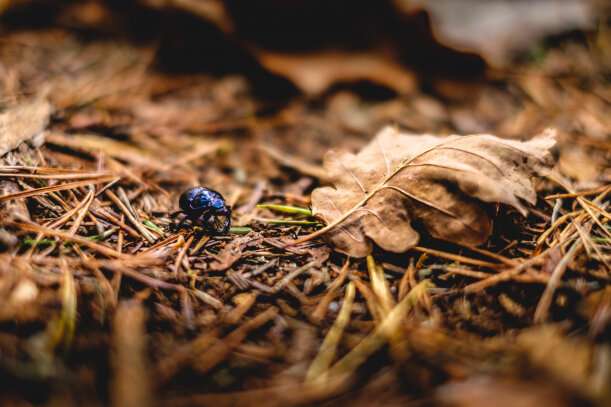Plant-eating insects disrupt ecosystems and contribute to climate change

A new study from Lund University in Sweden shows that plant-eating insects affect forest ecosystems considerably more than previously thought. Among other things, the insects are a factor in the leaching of nutrients from soil and increased emissions of carbon dioxide. The researchers also establish that the temperature may rise as a result of an increase in the amount of plant-eating insects in some regions.
Using extensive meta-analysis, a research team at Lund University has for the first time examined how plant-eating insects affect soil processes in forest ecosystems globally. The study, which is published in Journal of Ecology, examines biological and biogeochemical reactions in the soil. When damaged plants, carcasses and secretion substances from insects fall to the ground, the turnover of carbon and nutrients increases. This leads to leaching from the forest floor and the release of more carbon dioxide.
"The number of plant-eating insects may increase due to climate change, especially in cold areas where a lot of carbon is sequestered in the ground. This will affect the forest ecosystems and lead to an increased release of greenhouse gases and a potential rise in temperature," says Dan Metcalfe, physical geography researcher at Lund University.
In the new study, researchers have established that insects and large mammals affect soil processes in a similar way, even though they have very different population patterns and feeding habits.
"Insects are more specialised in terms of food sources and can also increase their population by 50 to 100 times from one season to another. This means that plant-eating insects can sometimes disrupt forest ecosystems much more than plant-eating mammals," says Dan Metcalfe.
Tropical and northern forests account for 80 percent of the world's total forested land area, but are very underrepresented in research literature. The researchers hope that the new results will be of practical use by being incorporated in climate models.
"Understanding how ecosystems work is crucial for being able to predict and combat climate change. Mammals are decreasing, whereas there is a lot to indicate that the number of insects will increase in some regions in a warmer world," concludes Dan Metcalfe.
More information: Jeppe Å. Kristensen et al. Below‐ground responses to insect herbivory in ecosystems with woody plant canopies: A meta‐analysis, Journal of Ecology (2019). DOI: 10.1111/1365-2745.13319
Journal information: Journal of Ecology
Provided by Lund University





















